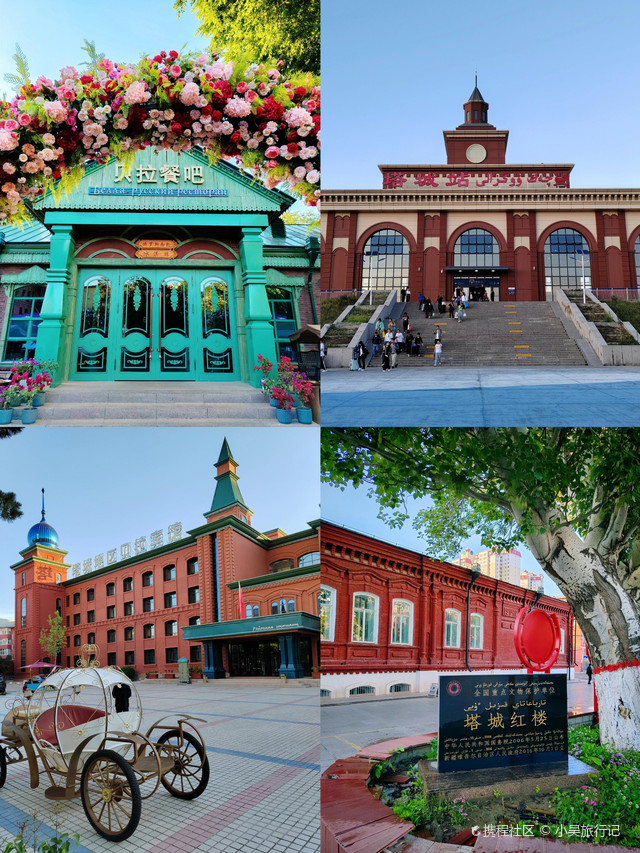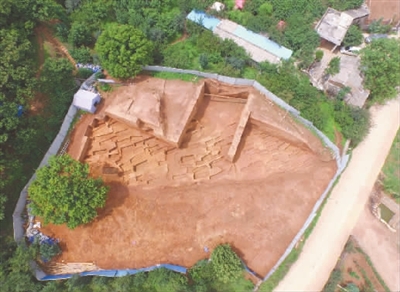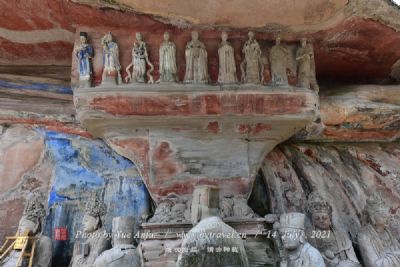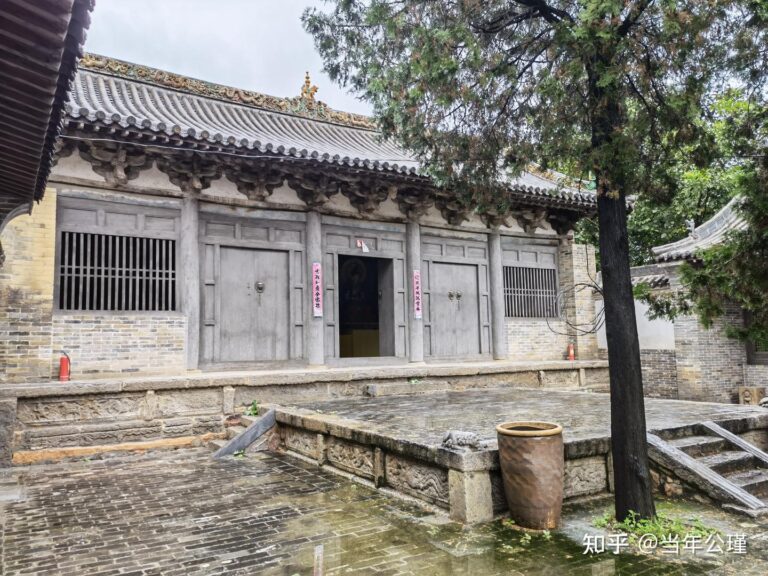Unveiling Zunyi Meitan: Your Ultimate Guide to the Enchanting Zhejiang Daxue Jiuzhi
An Essential Guide to Visiting Zunyi Meitan Zhejiang Daxue Jiuzhi
In This Guide
- An Essential Guide to Visiting Zunyi Meitan Zhejiang Daxue Jiuzhi
- The Rich History of Zunyi Meitan Zhejiang Daxue Jiuzhi
- Main Highlights: What to See at Zunyi Meitan Zhejiang Daxue Jiuzhi
- Planning Your Visit: A Practical Guide
- Tickets, Hours, and Booking
- How to Get There
- Local Cuisine and Accommodation
- Frequently Asked Questions
- Final Thoughts on Your Trip
Nestled in the picturesque Meitan County of Guizhou Province, the Zunyi Meitan Zhejiang University Historical Site stands as a remarkable testament to resilience and intellectual pursuit during one of China’s most tumultuous periods. This site is not merely an architectural remnant; it represents a significant chapter in the history of Zhejiang University, often hailed as the “Cambridge of the East.”
During the Second Sino-Japanese War, in the autumn of 1937, the university faced imminent danger as Japanese forces advanced towards its home in Hangzhou. Under the guidance of its visionary president, Zhu Kezhen, over 700 faculty and students embarked on a perilous westward migration, traversing six provinces and covering more than 2,500 kilometers. Their journey, fraught with hardship and uncertainty, eventually led them to the serene landscapes of Meitan, where they established a temporary base of education amidst the chaos of war.
The remnants of this historical site include several well-preserved structures such as the Wenmiao (Confucius Temple), which served as the university’s office and library, and the Yi Quan Wan Shou Palace, which was once the graduate school. Each location encapsulates the spirit of perseverance and dedication that characterized this era. The faculty and students not only continued their academic pursuits but also contributed significantly to the local community, enhancing agricultural practices and educating local talent.
Today, the Zunyi Meitan Zhejiang University Historical Site is recognized as a national key cultural relic protection unit, inviting visitors to explore its rich history and the enduring legacy of the university’s commitment to education and research. As you wander through the site, you will not only witness the physical remnants of this academic sanctuary but also feel the echoes of determination and hope that resonate through its storied past.
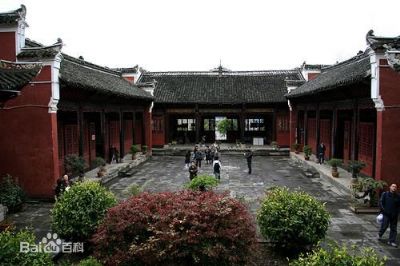
Zunyi Meitan Zhejiang Daxue Jiuzhi.
The Rich History of Zunyi Meitan Zhejiang Daxue Jiuzhi
Nestled in the heart of Meitan County, Guizhou Province, the Zunyi Meitan Zhejiang University Former Site (湄潭浙江大学旧址) is a poignant reminder of resilience and determination in the face of adversity. This historical site marks the temporary relocation of Zhejiang University during the tumultuous years of the Second Sino-Japanese War (1937-1945), a journey that transformed the institution and left an indelible mark on both the university and the local community.
In the autumn of 1937, as Japan’s invasion of China escalated, Zhejiang University, then located in Hangzhou, faced imminent danger. Under the leadership of President Zhu Kezhen, the university initiated a westward migration to preserve its academic heritage and continue its mission of education and research. This arduous journey spanned two and a half years, covering over 2,500 kilometers and traversing six provinces, including Jiangxi, Guangxi, and finally reaching Guizhou’s Zunyi and Meitan.
The Zhejiang University community, comprising over 700 faculty and students, encountered significant hardships along the way, including material shortages and challenging living conditions. Nevertheless, they were driven by a profound commitment to their country and a shared belief in the transformative power of education. During their time in Meitan, they established several important academic institutions, including the Graduate School and various research programs focused on agricultural science, climate studies, and local flora and fauna.
The local population of Meitan extended their support to the university, recognizing its potential to contribute to the region’s cultural and agricultural development. As a result, Zhejiang University played a pivotal role in nurturing talent and advancing agricultural practices during its seven-year stay in the area. Notable research projects included studies on the local tea plant soil and the fermentation of brown sugar, which significantly impacted the local economy.
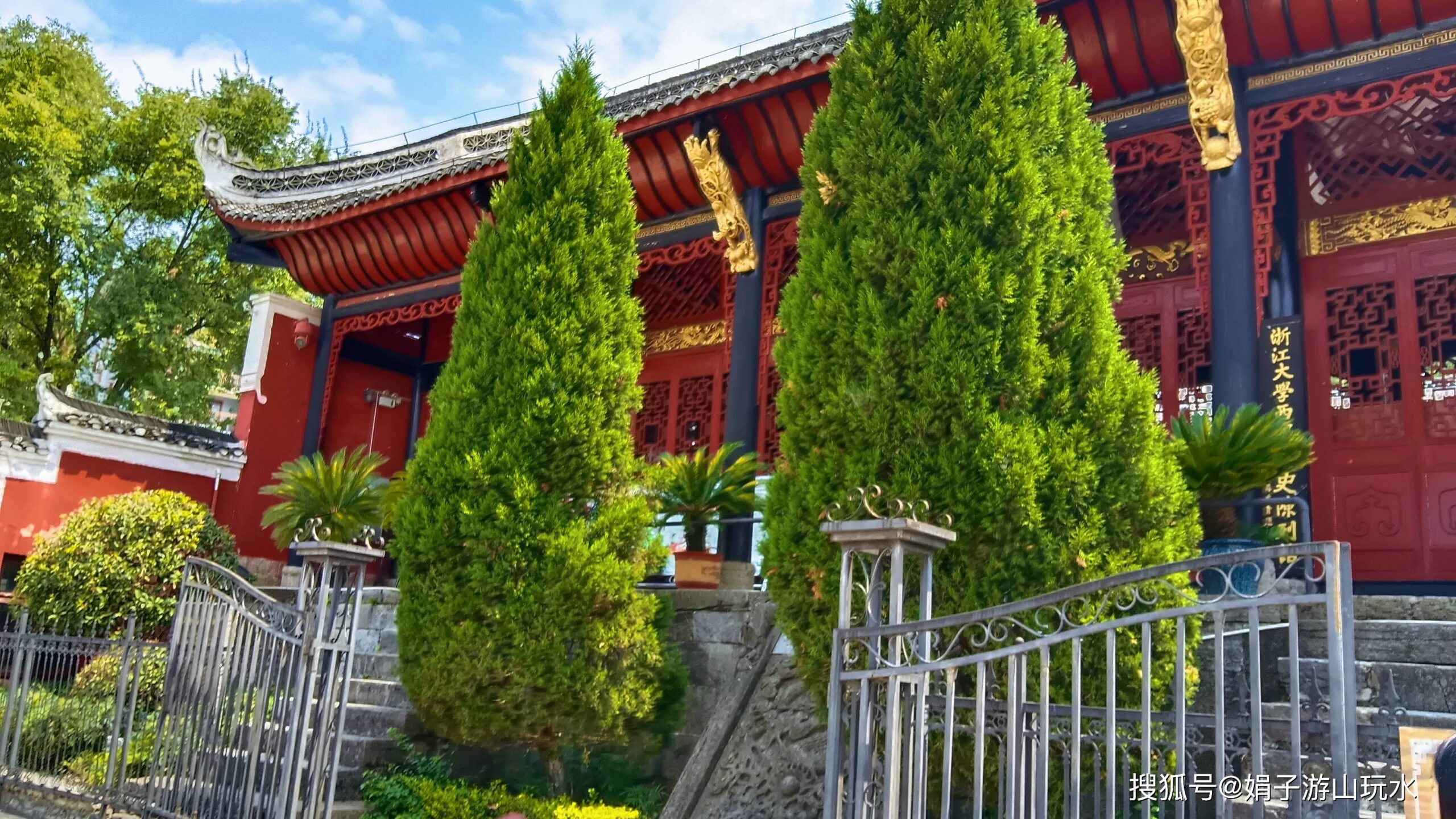
Zunyi Meitan Zhejiang Daxue Jiuzhi.
The legacy of this period is celebrated today, as the Zunyi Meitan Zhejiang University Former Site has been designated a key cultural heritage site by the State Council of China. The site comprises several well-preserved structures, including the former library, professor residences, and the Graduate School’s original building, which collectively tell the story of the university’s resilience and commitment to education amidst adversity.
In 2006, it was officially recognized as a site of historical significance, further solidifying its importance in the narrative of China’s educational history. The history of Zhejiang University in Meitan is not just a tale of survival; it is a testament to the enduring spirit of academic pursuit and the cultivation of knowledge in even the most challenging circumstances. Today, visitors to the site can reflect on this rich history and appreciate the contributions made by both the university and the local community during a critical period in Chinese history.
Main Highlights: What to See at Zunyi Meitan Zhejiang Daxue Jiuzhi
Nestled in the scenic Meitan County of Guizhou Province, the Zunyi Meitan Zhejiang University Old Site is a poignant landmark that tells the story of resilience and cultural significance during a tumultuous period in Chinese history. This site is not just a collection of historical buildings; it is a testament to the enduring spirit of education amidst adversity.
Historical Significance
The site plays a crucial role in the narrative of Zhejiang University, which relocated here during the Second Sino-Japanese War in 1937. Under the leadership of President Zhu Kezhen, over 700 faculty and students traversed more than 2,500 kilometers across six provinces over two and a half years to reach Meitan. This migration was driven by the need to preserve academic integrity and continue educational endeavors in the face of war. The Meitan site, formerly home to various educational and cultural institutions, became a sanctuary for scholars committed to advancing knowledge and research despite the dire circumstances.
Architectural Highlights
Among the nine well-preserved structures at the site, visitors can explore the former Confucian Temple, which served as the university’s library and office. The nearby Catholic Church was once the residence of professors, while the Yiquan Wanshou Palace housed the graduate school. Each building reflects a unique aspect of the university’s history, offering visitors a glimpse into the daily lives of students and educators during their years in Meitan.
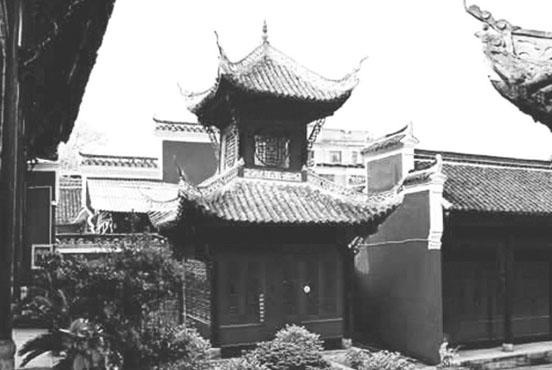
Zunyi Meitan Zhejiang Daxue Jiuzhi.
Educational Contributions
During its time in Meitan, Zhejiang University significantly contributed to local education and agriculture. The faculty conducted numerous research projects tailored to the region, including studies on climate, soil chemistry for tea plantations, and experiments in agricultural production. This legacy of knowledge transfer not only helped the university thrive but also laid the groundwork for future advancements in the local economy.
Cultural Impact
The Zhejiang University Old Site is recognized as a national key cultural relic, designated by the State Council of China. It encapsulates the spirit of perseverance and dedication to education, making it a symbol of cultural heritage. Visitors are encouraged to reflect on the sacrifices made by those who studied and taught here, as well as the profound impact the university had on the local community.
Visitor Experience
A visit to the Zhejiang University Old Site is enriched by the accompanying historical exhibitions that detail the university’s journey and achievements. The on-site museum offers a comprehensive narrative of the university’s migration and its pivotal role in preserving Chinese intellectual heritage during a time of crisis. With engaging displays and artifacts, visitors will leave with a deeper appreciation of the site’s significance.
This historical landmark not only serves as a reminder of the past but also inspires future generations to value education, resilience, and cultural preservation. Whether you are a history enthusiast, an education advocate, or a curious traveler, the Zunyi Meitan Zhejiang University Old Site promises an enriching experience that connects the past with the present.
Planning Your Visit: A Practical Guide
When planning a visit to Zunyi Meitan Zhejiang Daxue Jiuzhi (湄潭浙江大学旧址), a site rich in history and cultural significance, it’s important to consider various practical aspects to ensure a smooth and enjoyable experience. Here’s a comprehensive guide to help you navigate your visit.
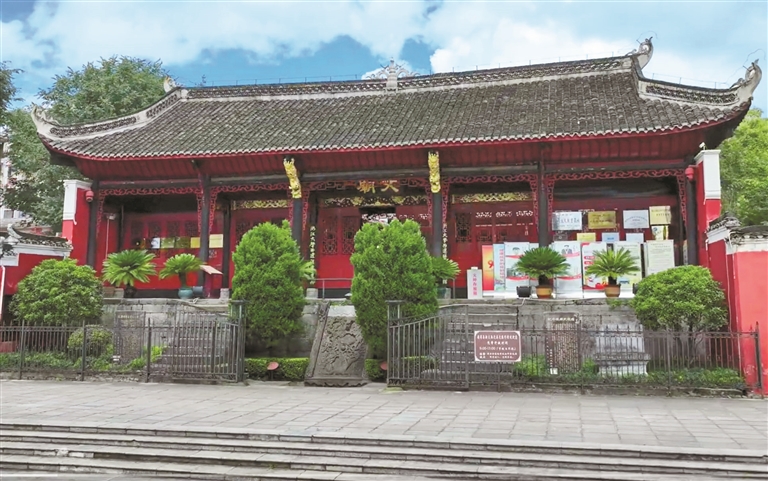
Zunyi Meitan Zhejiang Daxue Jiuzhi.
Getting There
Location:
The site is located in Meitan County, Zunyi City, Guizhou Province, China. It is nestled between Meijiang Town and Yongxing Town. The historical buildings are scattered across these areas, with the most notable sites being the former library, the residences of professors, and various student accommodations.
Transportation:
– By Car: The most convenient way to reach the site is by car. The roads are generally well-maintained, and driving allows for flexibility in exploring surrounding areas.
– Public Transport: Buses connect Zunyi City with Meitan County. Ensure to check local schedules for the most updated information on routes and timings.
– Taxis/Ride-sharing: Local taxis or ride-sharing services can also be an option for direct access.
Opening Hours
The Zunyi Meitan Zhejiang Daxue Jiuzhi is open daily from 9:00 AM to 5:00 PM. It’s advisable to check for any special holiday hours or potential closures before planning your visit. Guided tours may be available, offering deeper insights into the historical context of the site.
Admission
Admission to the site is typically free. However, for guided tours or special exhibitions, a small fee may be required. It’s best to inquire at the entrance or check online for any updates regarding fees or reservations.
What to See
While visiting, you’ll want to explore several key locations within the site:
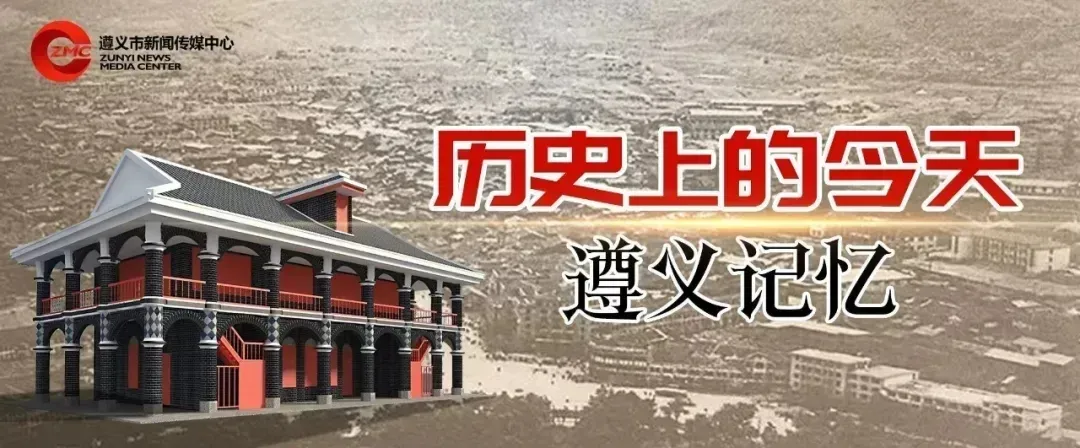
Zunyi Meitan Zhejiang Daxue Jiuzhi.
- Meitan Confucius Temple: Originally the site’s administrative hub, it showcases traditional architecture and serves as a library.
- Professors’ Residences: Get a glimpse of where the eminent professors lived during their time at Zhejiang University.
- Graduate School’s Old Site: This location reflects the academic spirit that thrived during a time of adversity.
- Historical Exhibitions: The site features exhibitions that narrate the story of Zhejiang University’s relocation during the Second Sino-Japanese War.
Nearby Attractions
After exploring the university site, consider visiting some nearby attractions to enrich your experience:
- Meitan Tea Sea Ecological Park: Known for its picturesque tea plantations, it’s a great place to relax and enjoy the scenery.
- Meijiang Gorge Scenic Area: A stunning natural landscape that offers hiking and panoramic views.
- Zunyi Conference Site: A significant historical landmark located in Zunyi City, showcasing China’s revolutionary history.
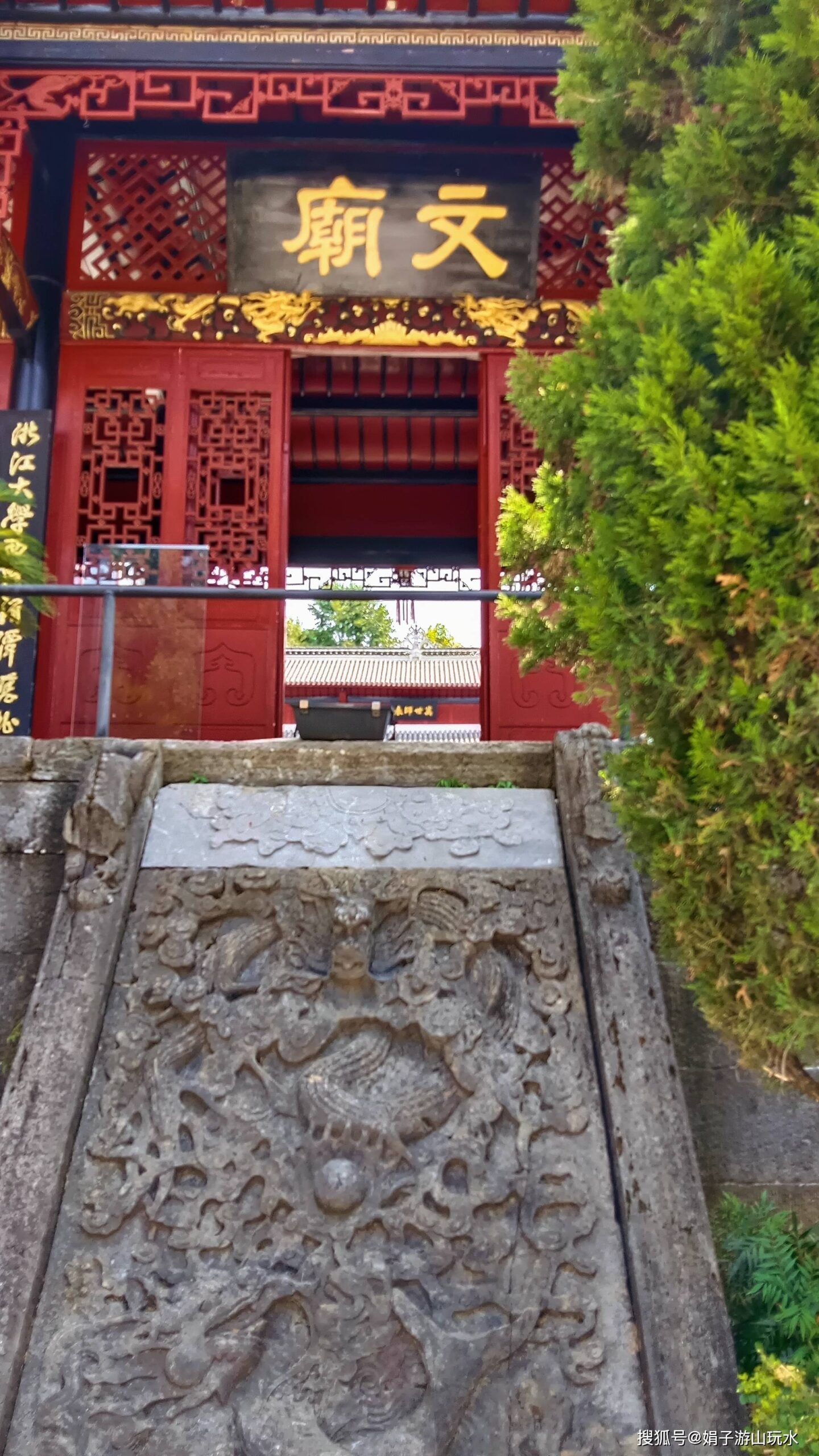
Zunyi Meitan Zhejiang Daxue Jiuzhi.
Tips for Visitors
- Wear Comfortable Shoes: The site requires some walking, so comfortable footwear is essential.
- Stay Hydrated: Bring water, especially during warmer months, as you may be walking for extended periods.
- Respect the Site: As a historical monument, it’s important to respect the integrity of the buildings and grounds.
- Plan for Weather: Check the weather forecast before your visit. Rain gear or sun protection may be necessary depending on the season.
- Photography: Don’t forget your camera! The blend of history and natural beauty offers excellent photo opportunities.
Conclusion
Visiting Zunyi Meitan Zhejiang Daxue Jiuzhi provides a unique opportunity to immerse yourself in a significant chapter of Chinese educational history. With careful planning and an appreciation for the past, your visit is sure to be memorable. Enjoy your journey through history at this remarkable site!
Tickets, Hours, and Booking
Visiting the Zunyi Meitan Zhejiang Daxue Jiuzhi (湄潭浙江大学旧址) is an enriching experience that delves deep into the history of education and resilience during wartime in China. The site is home to several preserved structures that were once part of Zhejiang University during its westward relocation in the late 1930s.
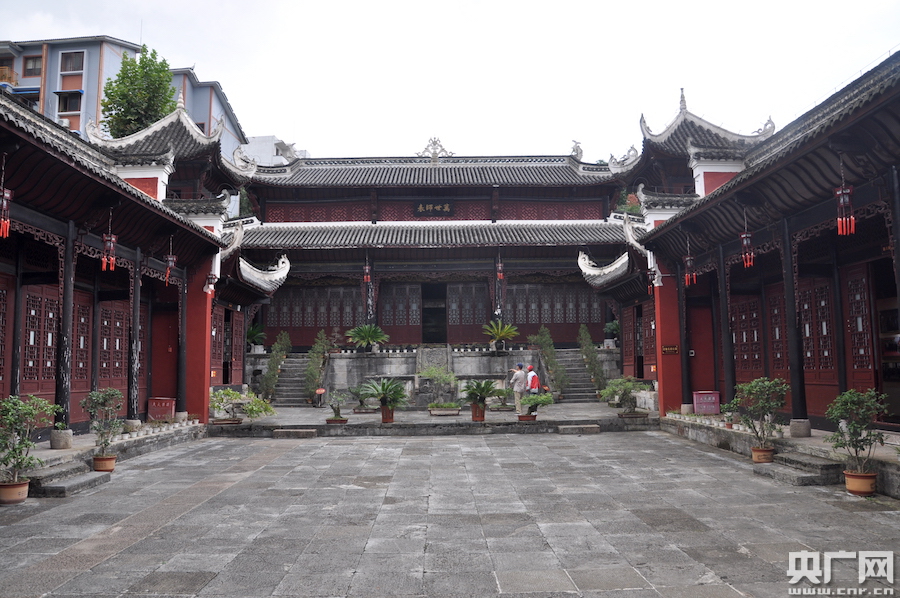
Zunyi Meitan Zhejiang Daxue Jiuzhi.
Ticket Information
-
Entry Fees: Admission to the Zunyi Meitan Zhejiang Daxue Jiuzhi is free of charge, making it an accessible destination for all visitors interested in history and education.
-
Opening Hours: The site is open daily from 9:00 AM to 5:00 PM. It remains open during public holidays, allowing visitors ample opportunity to explore its rich history.
-
Guided Tours: While entry is free, the site offers complimentary guided tours to enhance your visit. It is advisable to book these in advance, especially during peak tourist seasons. Guided tours provide valuable insights into the significance of the university’s westward migration and the contributions of its scholars during a turbulent time in Chinese history.
-
Reservation: To ensure a smooth experience, it’s recommended to reserve your spot for the guided tours ahead of time. You can contact the local tourism office or check the official website for more details on how to book.
-
Accessibility: The Zunyi Meitan Zhejiang Daxue Jiuzhi is designed to be accessible for all visitors, including those with mobility challenges.
-
Transport Options: The site is best reached by car, and there is ample parking available nearby. Public transport options may also be available, so checking local transit routes can help plan your visit.
By visiting this historical site, you not only get to witness the architectural remnants of Zhejiang University’s past but also engage with the profound stories of perseverance and dedication that shaped modern Chinese education.
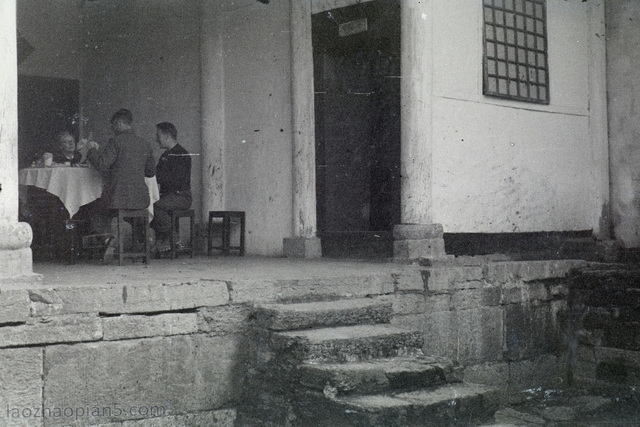
Zunyi Meitan Zhejiang Daxue Jiuzhi.
How to Get There
Getting to Zunyi Meitan Zhejiang Daxue Jiuzhi (湄潭浙江大学旧址) can be a captivating journey through the scenic landscapes of Guizhou Province. This historical site is located in Meitan County, which is easily accessible by various modes of transportation. Here’s a guide to help you navigate your way to this significant cultural landmark.
By Air
The nearest major airport to Zunyi Meitan is Zunyi Maotai Airport (ZUY), which is approximately 30 kilometers from the site. This airport offers domestic flights from major cities such as Beijing, Shanghai, and Guangzhou. Once you arrive, you can hire a taxi or use a ride-hailing app to reach the historical site directly.
By Train
Zunyi is well-connected via the railway network. The Zunyi Railway Station is the closest major station, located about 40 kilometers from the Zunyi Meitan Zhejiang Daxue Jiuzhi. High-speed trains from cities like Guiyang and Chongqing frequently run to Zunyi. Upon arrival at the station, you can take a taxi or a local bus to reach Meitan County.
By Bus
Bus services operate extensively across Guizhou Province, making it simple to reach Meitan from various cities. From Zunyi City, several local buses head towards Meitan County. The journey typically takes about an hour. You can catch buses from the Zunyi Long-distance Bus Station, which offers regular routes to Meitan.
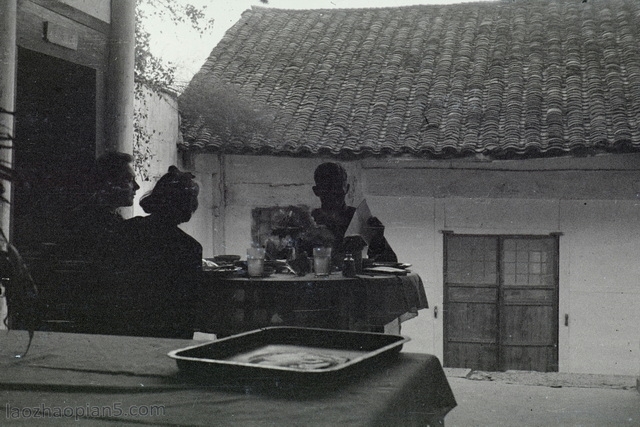
Zunyi Meitan Zhejiang Daxue Jiuzhi.
By Car
Driving to Zunyi Meitan can be an enjoyable experience, allowing you to appreciate the picturesque countryside. If you’re coming from Guiyang, the capital of Guizhou, the drive takes around two hours via the G75 highway. Make sure to use a GPS navigation system to find the best route and avoid any road closures.
Local Transportation
Once in Meitan County, local transportation options include taxis, ride-hailing services, and buses. The site itself is positioned conveniently within the town, making it easy to reach on foot if you’re staying nearby. Consider renting a bicycle or walking to explore the surrounding areas as well, which are rich in natural beauty and local culture.
Accessibility
The site is generally accessible for most visitors, but it is advisable to check in advance for any specific requirements or assistance needed for those with mobility issues.
By following these transportation options, you can easily make your way to Zunyi Meitan Zhejiang Daxue Jiuzhi and immerse yourself in the rich history and culture that this site has to offer.
Local Cuisine and Accommodation
When visiting the historic site of Zunyi Meitan Zhejiang Daxue Jiuzhi, you’ll find a blend of cultural significance and local charm, making it an excellent destination for experiencing both history and gastronomy.
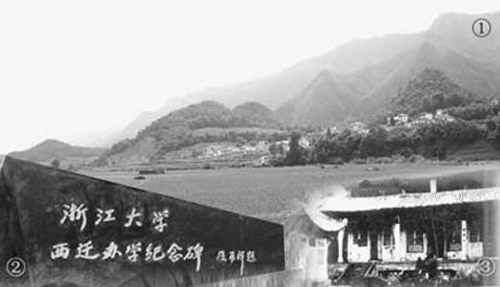
Zunyi Meitan Zhejiang Daxue Jiuzhi.
Where to Stay
For those looking to immerse themselves in the local culture, consider staying at one of the nearby guesthouses or hotels that offer a warm and welcoming atmosphere.
-
Meitan Hotel: This local establishment provides comfortable accommodations with essential amenities. It’s conveniently located near the historical site, making it easy to explore the surroundings.
-
Zunyi International Hotel: A bit further away in Zunyi city, this hotel offers modern conveniences, including free Wi-Fi, a restaurant, and a fitness center. It’s an excellent choice for travelers who prefer a more luxurious stay.
-
Local Guesthouses: For a more authentic experience, opt for a guesthouse in the Meitan area. Many of these are family-run and offer a cozy stay, often with home-cooked meals available. This is a fantastic way to experience the local hospitality and culture.
Culinary Delights
The culinary scene in Meitan is vibrant and diverse, with local dishes that reflect the rich agricultural heritage of the region. Don’t miss out on these specialties:
-
Meitan Tea: Renowned for its quality, Meitan is famous for its tea. Be sure to visit one of the local tea houses to sample fresh brews and learn about the tea-making process.
-
Three-Handled Chicken (三把鸡): A local delicacy, this dish features tender chicken cooked with a mix of spices, giving it a unique flavor that you won’t find elsewhere.
-
Danxia Wild Vegetable Feast (丹霞野菜荤素筵): This feast showcases a variety of wild vegetables native to the region, often served alongside meat dishes. It’s a great way to experience the local flora and culinary creativity.
-
Fermented Rice Cakes (四色甜酒粑): These sweet treats are made from fermented rice, offering a delightful combination of flavors and textures. They make for a perfect dessert or snack while exploring.
-
Mijiao (湄窖): A local liquor made from fermented grains, Mijiao is a must-try for those looking to indulge in the region’s alcoholic beverages. Be sure to drink responsibly while enjoying this traditional drink.
Dining Recommendations
For dining options, consider these establishments that provide both local and wider Chinese cuisine:

Zunyi Meitan Zhejiang Daxue Jiuzhi.
-
Meitan Cuisine Restaurant: Located near the historical site, this restaurant specializes in local dishes and is favored by both locals and visitors. The warm atmosphere and friendly staff make it a great spot for a meal after a day of exploring.
-
Zunyi Food Street: If you’re willing to venture into Zunyi city, this food street is bustling with a variety of stalls and restaurants offering everything from street food to more formal dining options. It’s an excellent place to sample a range of local flavors.
Whether you choose to stay in a cozy guesthouse or a luxurious hotel, and regardless of what culinary delights you decide to indulge in, your visit to Zunyi Meitan Zhejiang Daxue Jiuzhi promises to be a memorable experience filled with rich history and delicious food.
Frequently Asked Questions
FAQs about Zunyi Meitan Zhejiang Daxue Jiuzhi (湄潭浙江大学旧址)
-
What is the significance of the Zunyi Meitan Zhejiang Daxue Jiuzhi?
The Zunyi Meitan Zhejiang Daxue Jiuzhi, or the former site of Zhejiang University in Meitan, holds historical importance as it represents the resilience and dedication of the university community during the Second Sino-Japanese War. Relocating in 1937, the institution contributed significantly to education and agriculture in the region while facing numerous challenges. -
Where is the site located?
The site is situated in Meitan County, Zunyi City, Guizhou Province, China. It can be found in the Meijiang Town and Yongxing Town areas, encompassing several preserved historical buildings. -
What buildings are part of the preserved site?
The site features several significant structures, including the old office and library (Wenchang Temple), the professors’ residence (Catholic Church), the graduate school (Yiquan Wanshou Palace), and the students’ residence (Li Family Residence), among others. -
Is the site open to visitors?
Yes, the site is open to the public. Visitors can explore the various historical buildings and exhibits that commemorate the university’s contributions to education and research during its time in Meitan. -
What can I learn by visiting this site?
Visitors can gain insights into the history of Zhejiang University, its westward migration during wartime, and the impact of academic pursuits on local culture and agriculture. The site also showcases the spirit of perseverance and dedication in the face of adversity. -
How can I get to the Zunyi Meitan Zhejiang Daxue Jiuzhi?
The site is best accessed by car. If you’re traveling from Zunyi City, you can follow local directions or use navigation apps that provide guidance to Meitan County. -
Are there any special events or exhibitions held at the site?
Occasionally, the site hosts educational events and exhibitions focused on the history of Zhejiang University and its contributions during the wartime period. It’s advisable to check local listings or the official website for any upcoming events. -
What other attractions are nearby?
In addition to the Zunyi Meitan Zhejiang Daxue Jiuzhi, visitors can explore nearby attractions such as the Zunyi Conference Site, Meijiang Gorge Scenic Area, and various natural parks, which offer opportunities for hiking and enjoying the local landscape.
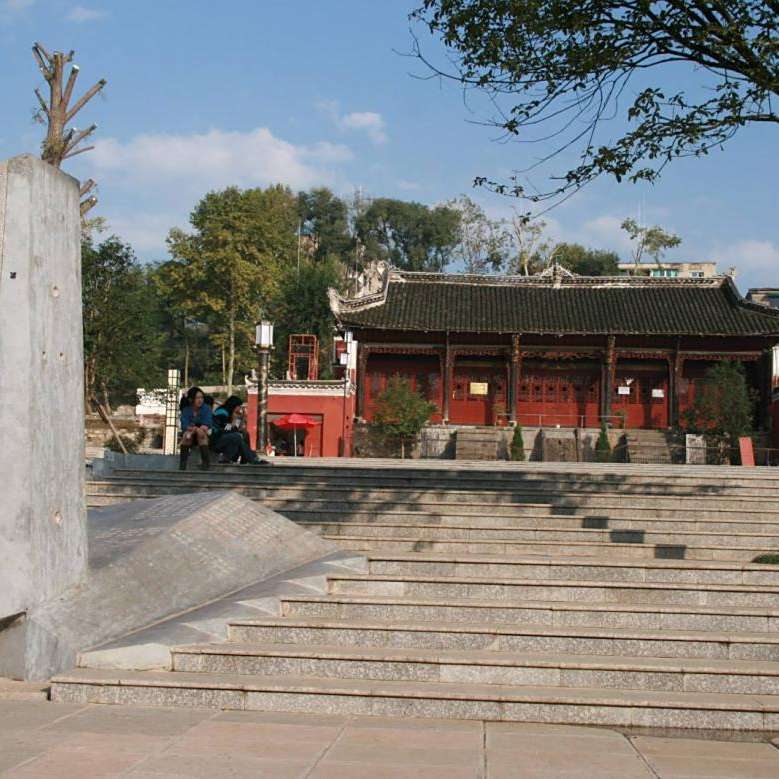
Zunyi Meitan Zhejiang Daxue Jiuzhi.
Final Thoughts on Your Trip
The Zunyi Meitan Zhejiang Daxue Jiuzhi (湄潭浙江大学旧址) stands as a poignant testament to resilience and the enduring spirit of education amidst adversity. Nestled in the serene landscape of Meitan County, this historic site not only marks the temporary home of Zhejiang University during a tumultuous period in Chinese history but also symbolizes the unyielding pursuit of knowledge and progress.
Visiting this site offers a unique opportunity to reflect on the sacrifices made by educators and students who, under the leadership of President Zhu Kezhen, journeyed thousands of kilometers to ensure that the flame of learning was kept alive during World War II. Their commitment to education, even in the face of overwhelming challenges, left an indelible mark on both the academic landscape and the local community of Meitan.
Today, the preserved structures and the accompanying historical exhibits narrate stories of innovation and the contributions made to agriculture and culture in the region. They serve as a reminder that education is not merely about the acquisition of knowledge; it is also about fostering resilience, community, and a shared vision for a better future.
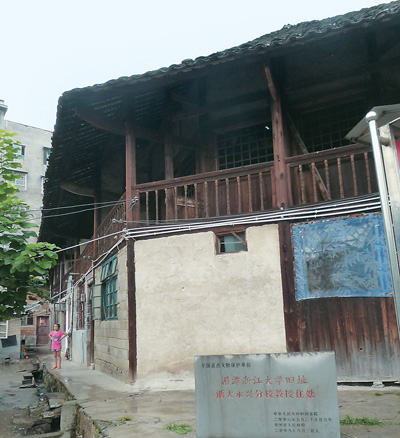
Zunyi Meitan Zhejiang Daxue Jiuzhi.
As you explore the remnants of this remarkable chapter in Zhejiang University’s history, you are invited to embrace the spirit of inquiry and dedication that defined this institution. May your journey through the Meitan Zhejiang University site inspire you to pursue your own passions with the same fervor and commitment to making a positive impact in the world.
